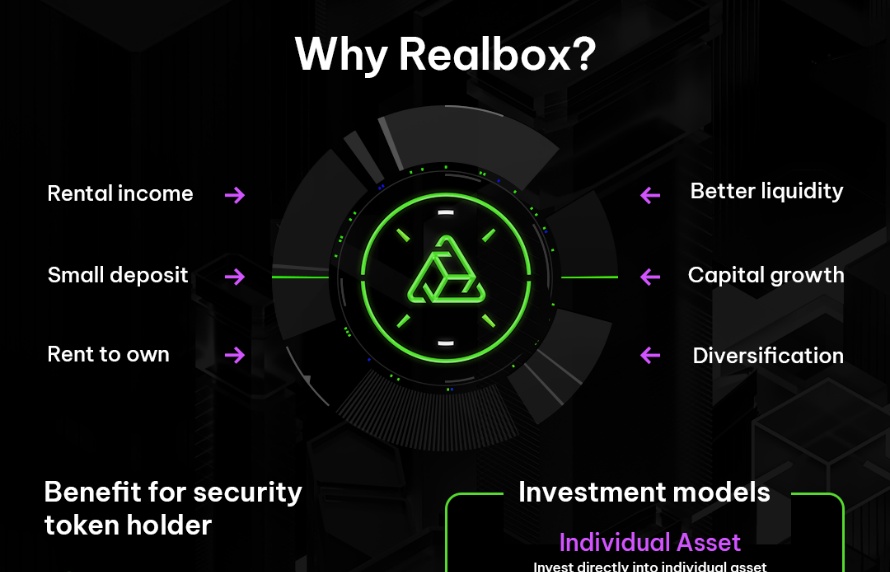Real estate tokenisation risks must be accounted for
This is critical to the integrity of the project because if the tokenised asset cannot be redeemed at will by token holders, the token values can potentially fall to zero.
 |
| Tokenisation offers a glimmer of light for those priced out of the property market Photo: Shutterstock |
Counterparty risk is the likelihood or probability that one or more parties in a transaction may not be able to honour their part of the deal and default on their contractual obligations. Without definitively knowing the counterparty, it will be challenging to truly know the counterparty risk of any tokenised positions, and investors looking to buy real estate tokens should always clarify who the counterparty of the tokenised real estate is before making any investment decisions to mitigate counterparty risks.
Liquidity is the lifeblood of any tokenisation project. When there is a lack of liquidity, huge price swings create unrealistic volatility, which increases the risk of holding real estate tokens. In such instances, users may only receive liquidity when the underlying real estate is sold.
However, if the real estate is never sold for any reason, token holders may be stuck without any recourse. Therefore, the liquidity risks for token holders may be higher than typical creditors or minority shareholders, who can exercise their rights enshrined in legislation to seek recourse.
Investors who mistakenly perceive that regulator-licensed crypto platforms are inherently secure will typically conduct less due diligence, given that they are subject to regulatory scrutiny. However, when these platforms fail, the investors will end up blaming the regulators, placing an unfair burden on them.
Although licensing provides some level of regulatory supervision, investors need to understand what the platform is being regulated and licensed for and still conduct their own due diligence to determine the long-term viability of their investments
Infrastructure risk is the likelihood of failure in the underlying infrastructure supporting the platforms. This typically includes the risks associated with the technology that the platforms are built on.
Most tokenisation projects, unless they are heavily battle-tested and under public scrutiny, will typically be subjected to some form of infrastructure risk.
These risks may manifest themselves by way of hardware failure, software failure, or vulnerabilities which can be exploited by hackers. Tokenisation projects touting the revolutionary benefits of blockchains are typically subject to their specific infrastructure risk and the actual blockchain infrastructure risk.
Therefore, investors should always assess both the platform and blockchain-specific risks when determining the security of a real estate tokenisation project.
 | Realbox launches one of the world’s first blockchain-based real estate tokenisation platforms Realbox (REB) is one of the world's first blockchain-based real estate tokenisation platforms, enabling retail investors to share ownership in global real estate, without incurring expensive costs and going through complicated transactions. |
(*)Annie Woo - Regional director, Integrated Real Estate Advisory Services in Asia Savills
What the stars mean:
★ Poor ★ ★ Promising ★★★ Good ★★★★ Very good ★★★★★ Exceptional
Related Contents
Latest News
More News
- Citi economists project robust Vietnam economic growth in 2026 (February 14, 2026 | 18:00)
- Sustaining high growth must be balanced in stable manner (February 14, 2026 | 09:00)
- From 5G to 6G: how AI is shaping Vietnam’s path to digital leadership (February 13, 2026 | 10:59)
- Cooperation must align with Vietnam’s long-term ambitions (February 13, 2026 | 09:00)
- Need-to-know aspects ahead of AI law (February 13, 2026 | 08:00)
- Legalities to early operations for Vietnam’s IFC (February 11, 2026 | 12:17)
- Foreign-language trademarks gain traction in Vietnam (February 06, 2026 | 09:26)
- Offshore structuring and the Singapore holding route (February 02, 2026 | 10:39)
- Vietnam enters new development era: Russian scholar (January 25, 2026 | 10:08)
- 14th National Party Congress marks new era, expands Vietnam’s global role: Australian scholar (January 25, 2026 | 09:54)

 Tag:
Tag:















 Mobile Version
Mobile Version